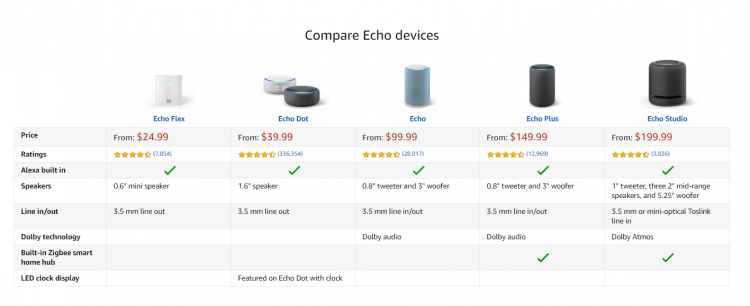Definition
Upselling is a marketing strategy that encourages customers to purchase a higher-priced version of the product or service they are interested in. Product or service suggestions may come in the form of upgrades, customized options, add -ons, etc.
One of the reasons why upselling is effective is because it targets existing customers who are far along the buying journey and almost ready for conversion. When done correctly, this marketing strategy can boost business revenue, increase customer lifetime value, and help build stronger relationships with customers based on a deeper understanding of their needs.

Screenshot of Amazon.com, showing an example of upselling
Differences between upselling and cross-selling
This marketing technique is sometimes mistakenly used as a synonym for cross-selling. However, and although both strategies can be used together, to upsell is not the same as to cross-sell.
Cross-selling entails persuading customers to buy additional products that are related to the one they are interested in. The criteria typically used to promote these products is that they are complementary to the main product. For example, a customer interested in buying a pair of sunglasses may also be interested in a case, or someone looking to purchase a laptop may also want to get computer accessories like an external hard drive or Bluetooth speakers.
On the other hand, if you were to upsell, you would suggest a higher-priced product, not a different type of product. Using the examples above, you would promote a pair of designer sunglasses or a top-of-the-line laptop with higher specifications.
Things to consider when upselling
There are several factors that can increase the effectiveness of your upsell strategy.
First, the customer has to see the benefits involved in buying the more expensive product. The decision to go for the pricier version has to appear like a no-brainer and to achieve this, you may need to break down the benefits to make them more obvious. This can be done by resorting to comparisons and creating a table that lists the features of different products, side by side.
You can also increase the effectiveness of an upsell by presenting the customer with detailed calculations that demonstrate the value of the pricier item. This will draw attention to the benefits and make it easier for the buyer to see why paying more is worth it.
To increase the chances of conversion, upselling should not come across as a forced option. Customers will not be attracted to aggressive upsells but will consider choosing more expensive products if they appear as a logical choice.
Upsells are usually placed in product pages or during the check out stage. But you can also benefit from successful upselling by promoting a higher-ticket product after a purchase or conversion. For example, after a customer has booked a hotel room, you can give them the chance of upgrading. To increase the chances of success, you can make the offer valid for a limited period of time to create a sense of urgency.
Advantages of upselling
Successful upsells can boost the bottom line of your business, but these are not the only advantages. As long as the products suggested are relevant to the customer’s needs, upsells can lead to higher customer satisfaction. A timely upsell shows that a company can anticipate their needs and can make them more receptive to the brand and to any future offers. Higher satisfaction also comes from customers knowing that they were given the best possible deal.
Moreover, this marketing technique can address emotional buying motives to the marketer’s advantage. Consumer behavior has a large emotional component, but upselling can balance it by spelling out the logical reasons to buy a pricier item. In addition, a relevant upsell can establish an emotional connection between a brand and customers, therefore improving customer retention.
Potential risks of upselling
If not planned correctly, this marketing technique can potentially have a negative impact on customer experience. Aggressive upsells can make buyers perceive a business as too salesy, and this may erode trust in the company.
Also, promoting products or services beyond the customer’s means can lead to frustration. This negative experience can feed into the decision-making process and make the customer abandon the buying process altogether.
Related links
- https://www.pepperi.com/15-proven-cross-selling-and-up-selling-tactics-increase-average-order-size/
- https://blog.hubspot.com/service/upsell-and-cross-sell
